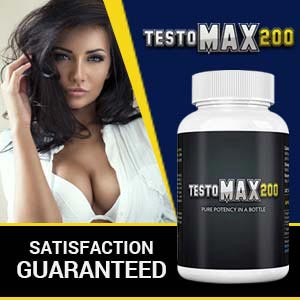USA, Ohio - Friday, 7, 2014 - At the point when the Food & Drug Administration
reviews your "everything characteristic" dietary supplement for
containing solution pharmaceuticals, you may feel that guarantees a quick
reclamation of the misbranded item to its wholesome common state, correct?
Wrong, says another study.
A few months after supplements were reviewed for
being unlawfully bound with professionally prescribed medications, analysts
purchased them off the racks and from the online inventories of supplement
retailers and checked whether they kept on containing the unlawful substances
for which they'd been reviewed.
In two-thirds of cases, the supplements did.
What's more in more than 1 in 5 cases, the
specialists discovered a second (or more) illicit add-ins in the reviewed
items. Either the supplement creator had multiplied down in the wake of the
FDA's review, adding more illicit fixings to the item, or the FDA had neglected
to banner the extra debasement in any case.
Those discoveries arrived in an examination letter
distributed Tuesday in the Journal of the American Medical Assn. More than 50%
of grown-up Americans use dietary supplements or something to that affect,
generally vitamin and mineral supplements. Be that as it may items that
frequently incorporate natural and plant concentrates and are advertised as
working out, weight reduction or sexual upgrade supports are a
multibillion-dollar business.
Not at all like medications, dietary supplements
don't need to be demonstrated protected before being sold, and producers can
make general claims about medical advantages. With constrained forces to
control dietary supplements, the FDA as of late has ventures up its reviews of
nutritious supplements that are debased with physician endorsed drugs.
In the three years starting January 2009, the office
requested that 274 such supplements be withdrawn from the business until the
doctor prescribed medications they illicitly contained was evacuated.
As a general rule, nonetheless, the most recent
evaluation proposes the FDA is neglecting to authorize its requests. The
examples -around 75% of which were delivered by American makers -were attracted
anywhere in the range of eight to 52 months after reviews had been requested.
The normal specimen was taken around three years after a review.
Of the 27 dietary supplements examined by a group
headed by Dr. Pieter A. Cohen, 13 were games improvement nourishing
supplements, and 11 of them- -85%- -kept on containning medicine add-ins
(counting anabolic steroids). Of nine weight reduction items tested, six kept
on containing physician endorsed solutions.
"Regular" marvel cures hawked for weight
reduction can incorporate any number of fixings, running from dubious to by and
large unsafe. The reviewed items regularly included sibutramine (showcased as
Meridia) or phenolphthalein. Phenolphthalein is a purgative that is constantly
withdrawn from over-the-counter solutions as a conceivable cancer-causing
agent, and sibutramine was withdrawn from the business in 2010 after it found
to have expanded the danger of cardiovascular occasions, for example, stroke
and heart assault.
Among the unlawful substances found in the
supplements were a sibutramine simple, benzyl sibutramine, that is never been
tried in people.
Despite the fact that dietary supplements showcased
as "male improvement" are much of the time reviewed for containing
sildenafil (also called Viagra), one and only of the five such items tested
still had the medicine item in it.
On the off chance that the FDA plans to secure the
American open from items that could employ them with obscure physician endorsed
solutions, Cohen thought of, it will need to build its implementation of
supplement reviews and may require extra powers or assets to do the employment.








0 comments:
Post a Comment